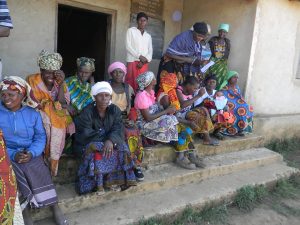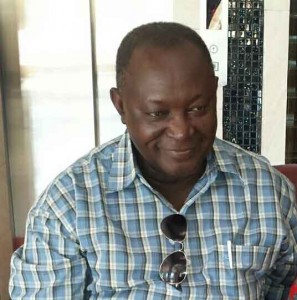Tanzania: Communities are fighting for their rights
By Deodatus Mfugale
April 8 2017
 Issues surrounding disputes over land ownership are many in Tanzania and in Africa generally. From 2000 to 2010, several violent conflicts in various parts of Tanzania occurred between agribusiness investors and communities. The conflict thus involved three parties, the government, the investor and the local community. The villagers found that the government had colluded with the investor to deny them the right to own land. “The government had given us a raw deal. It was bad enough to sell the farm to the investor when people in the village needed that land. Giving the investor additional land made our situation worse,” said Alex Kyando, a resident of Kapunga village.
Issues surrounding disputes over land ownership are many in Tanzania and in Africa generally. From 2000 to 2010, several violent conflicts in various parts of Tanzania occurred between agribusiness investors and communities. The conflict thus involved three parties, the government, the investor and the local community. The villagers found that the government had colluded with the investor to deny them the right to own land. “The government had given us a raw deal. It was bad enough to sell the farm to the investor when people in the village needed that land. Giving the investor additional land made our situation worse,” said Alex Kyando, a resident of Kapunga village.
In 2006 when the Tanzania government decided to privatize the Kapunga Rice Farm located in Mbeya Region ( Southern Highlands) to Export Trading Company, local communities were very disappointed and responded in a violent manner. In Babati District of Manyara Region, communities set on fire Tanzanian investor of Asian origin’s houses, stores, machinery, tractors. His relatives were also killed.
The bloody incident was a climax of a long-standing conflict between the two parties: local communities alleging that the investor had unlawfully taken their land and they wanted it back. But the land was sold to the investor for a 100 years lease agreement. The local community originally offered the land to the government to create a state farm. But the government had failed to manage it.
Government
Now things are changing and the demand by communities to uphold the right to own land is paying off. In 2015, the government declared that it would give back to the community the 1, 875 hectares of land that were sold to the investor of Kapunga Rice Farm which were over and above the original size of the farm. The government declaration became effective last year when the Minister responsible for lands announced that the parcel of land in question had been handed over to Mbarali District Council.
“We have revoked the title deed for the land that was not originally part of Kapunga Rice Farm when it was sold to Export Trading Company. The Mbarali District Council will survey the land and give it back to the villagers,” said William Lukuvi, Minister for Lands.
Arguments
Until January this year, the survey had been completed and the land handed over to Kapunga Village Government for allocation to community members. Although there are complaints from some individuals that the allocation was not done fairly, most of the community members are happy with the government’s decision and the subsequent actions by the district council and the village government respectively.
“This is our land. What the government has done is to make sure that our right to own land has been upheld,” says Mr Kyando.
There have also been developments in Manyara Region (Central Tanzania) where recently an investor has surrendered part of his land to communities around. Mr. Surendra Odedra, owner of Hamiri Estates Company relinquished ownership of 2,390 hectares of land and handed over the same to Mnyara Regional Commissioner Mr. Joel Bendera, so that it could be reallocated to community members around the farm. Mr.Odedra still owns 613 hectares of land.
There had been frequent violent conflicts between the investor and Kiru villagers with the latter often invading into the Hamiri Estate farm, demanding to be given pieces of land.
“The land that has been offered by Mr. Odedra will be owned by individual villagers. This should reduce conflicts between communities and the investor as well as between farmers and pastoralists now that more land has been made available for you,” said the Regional Commissioner at the handing over ceremony, adding that the process to revoke the titled deed for the land offered to the villagers, which stands at 100 years, will take time.
The demand by communities for the right to own land has also seen an investor in Uyole suburb of Mbeya City in the Southern Highlands Region relinquishing ownership of a chunk of land to the government so that it can be given back to villagers.
Local sources have revealed that in 2003, another Tanzanian investor, Mr Simon Gatuna had requested about 100 hectares from the community in order to build a school and other facilities. “However he has not built that school to-date and has been renting it out the land for agricultural activities instead. This is contrary to the agreement,” complained villagers.
Under the circumstances, Mbeya Regional Commissioner Amos Makalla ordered the Mbeya City Council Land Officer to repossess the land on behalf of the government and allocate it to community members. “Revoke the title deed of the investor. Survey the land and reallocate it to community members because they are the ones who have the right to own the land,” said the Regional Commissioner.
How can one secure its land?
Upholding land rights for local communities is more than just allocating land to individuals or villages. It also involves proving evidence of ownership to land. With such evidence, an individual has a secure tenure and can use the same for other purposes such as using it as collateral in order to secure a loan from a bank or any other financial institution.
However, the process to secure a title deed for rural individuals is tedious and may take months or even years. Most of these individuals do not also know the procedure to follow in order to get the documents which are proof ownership of land.
In order to ease the complication the Ministry of Lands works with district councils and village governments to provide villagers with Customary Certificates of Right of Occupancy (CCRO) which bear the same status as title deeds and are equally recognized by the government.
Women facing challenging
Customary Certificates of Right of Occupancy have also broken traditional barriers in places like Kilolo and Mufindi Districts of Iringa Region in the Southern Highlands. It was a taboo for a widow, a divorced woman or a girl to own land in the two districts, a situation which deprived women and girls the right to own land. However with the introduction of CCROs, everyone has the right to own land and can get evidence to prove the ownership by these certificates.
“Last year we issued over 500 CCRO to various villagers in the district. These were issued to men, women, boys and girls. Some of these were owned jointly between husband and wife, so in a way we are also working to abolish the tradition where only men have the right to own land, “said Leonard Jakka, Mufindi District Lands Officer.
Education: the key
Demanding the right to own land among rural community members needs a new push. Most of the people are unaware of their rights and need to be educated about it. A recently paper published jointly by International Institute for Environment and Development (IIED) and HAKIARDHI, a Land Rights Research and Resource Institute in Tanzania, highlights the need for locals to know their land rights and the need to protect them.
“To raise awareness and sustain knowledge on various issues related to land, we created Land Rights Monitors. These are mainly young men and women from the villages who are trained in various aspects of land law, arbitration of land disputes and land governance. Their work also involves reporting land violations by locals or foreign investors. This ensures that land rights are protected and respected,” explained Beatha Fabian, HAKIARDHI Executive Director.
For Mrs Fabian, Land Rights Monitors have made significant contribution in reducing land-based conflicts between farmers and pastoralists as well as between local communities and investors. “They act like watchdogs that protect the land rights of individuals in the community from infringement by local as well as foreign investors,” she added.
 Deodatus Mfugale is an experienced freelance environmental journalist based in Dar es Salaam Tanzania. He is a media consultant/trainer specializing in environment, climate change, extractives industry and investigative journalism. He works on voluntary basis with the Journalists Environmental Association Of Tanzania (JET) in the areas of writing features, editing and conducting short-term training sessions. Currently, he writes as a correspondent for Daily News and The Guardian newspapers, two Tanzanian newspapers. But he was formerly employed by The Guardian Ltd where he served as a news editor, and a features editor before he resigned in 2009. He is now a Board Memberof Shahidi wa Maji (Water Witness). Between 2012 and 2014. He served as a Member to the Advisory Committee of the Climate Change Research, Education and Outreach Programme of the University of Dar es Salaam. He has attended many climate change meetings and other international conferences.
Deodatus Mfugale is an experienced freelance environmental journalist based in Dar es Salaam Tanzania. He is a media consultant/trainer specializing in environment, climate change, extractives industry and investigative journalism. He works on voluntary basis with the Journalists Environmental Association Of Tanzania (JET) in the areas of writing features, editing and conducting short-term training sessions. Currently, he writes as a correspondent for Daily News and The Guardian newspapers, two Tanzanian newspapers. But he was formerly employed by The Guardian Ltd where he served as a news editor, and a features editor before he resigned in 2009. He is now a Board Memberof Shahidi wa Maji (Water Witness). Between 2012 and 2014. He served as a Member to the Advisory Committee of the Climate Change Research, Education and Outreach Programme of the University of Dar es Salaam. He has attended many climate change meetings and other international conferences.




